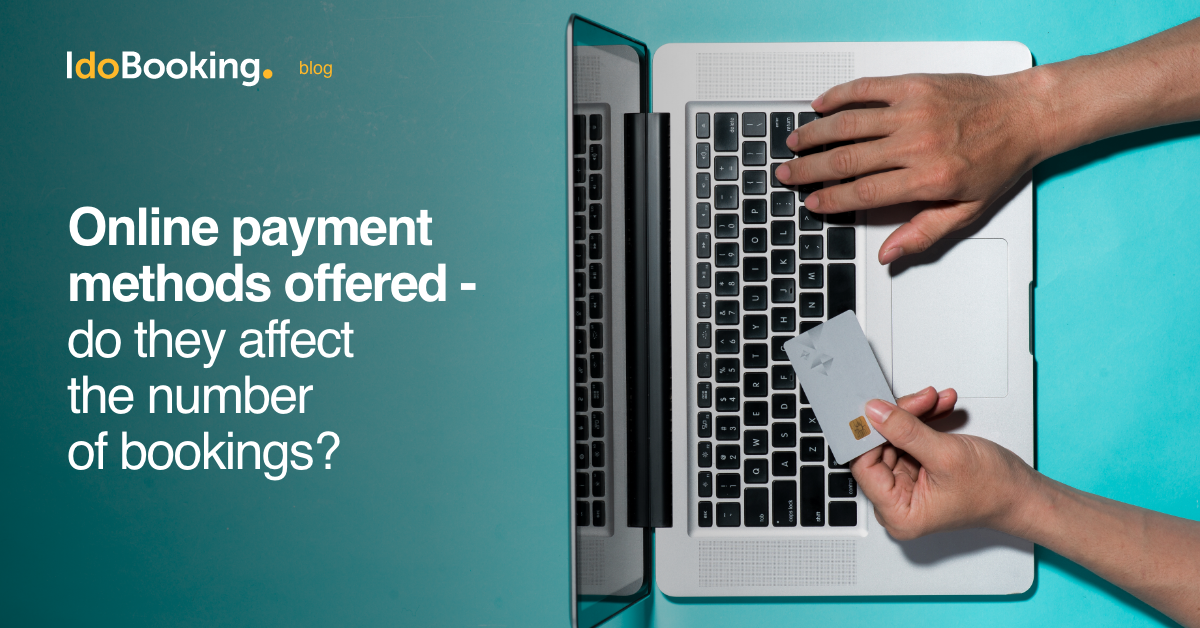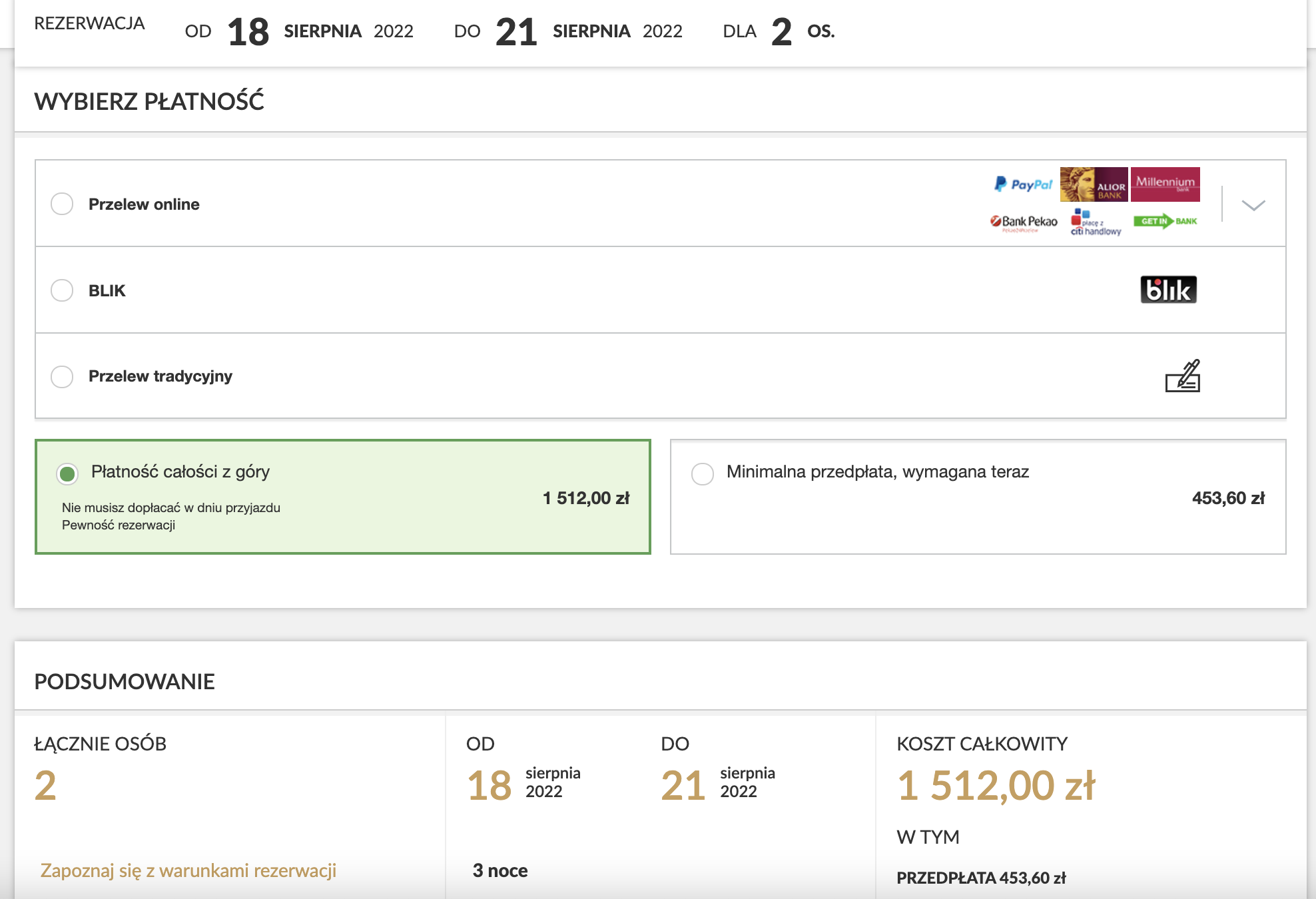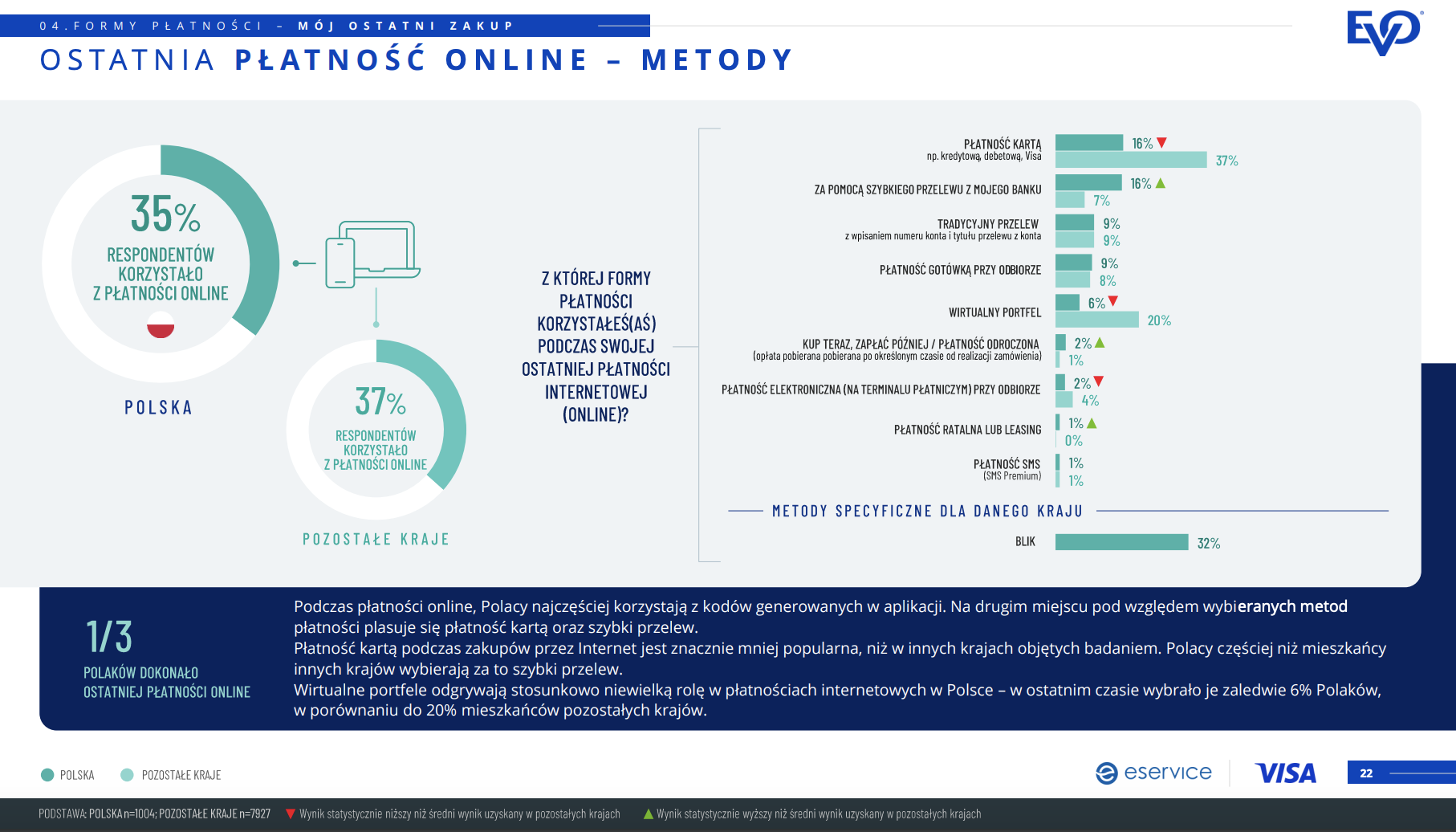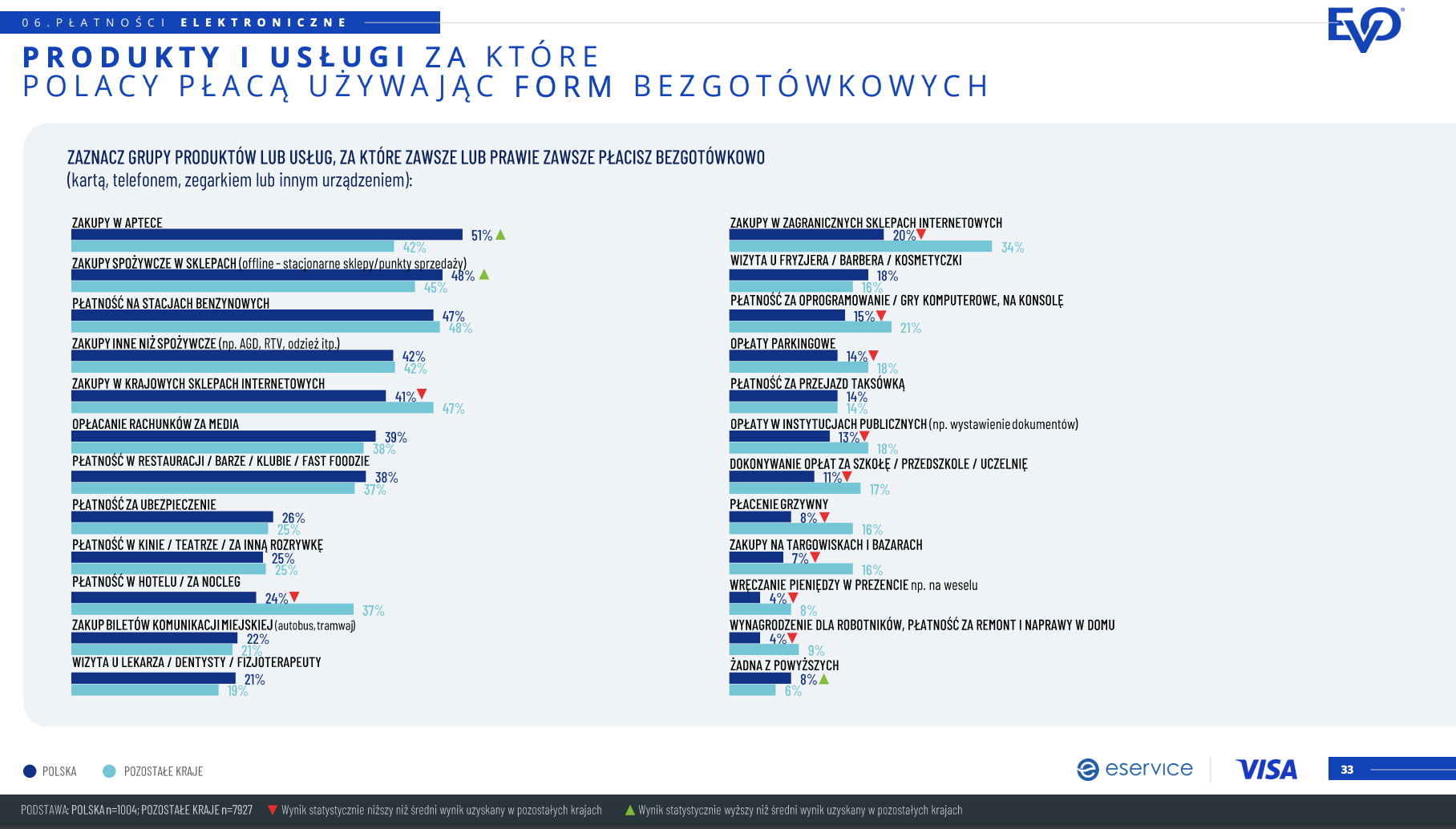
Online payment methods offered - do they affect the number of bookings?
When putting together an offer for your business and using a modern system, you can offer guests different payment methods for their booking. Which ones to choose and does this have any real impact on the number of bookings? These are questions that plague anyone starting their own tourism business.

Online payment methods offered
Poland is one of the countries where customers rely on cashless payments and are keen to use various innovations in this field. Payments with a smartphone or smartwatch, are no longer surprising. In booking systems, we generally have several payment methods to offer to the guest. The most common are:
- quick transfers (pay-by-link). - these involve the guest, either on the website or from an email, clicking on a special redirect to pay at their bank. The amounts required for bookings are automatically completed and the funds are immediately credited. This is due to the fact that the money is first placed on a special sub-account with the service provider and only in the next step is it transferred to the owner of the
- BLIK - is a mobile payment system, available on the bank's smartphone app. The transfer of money takes place after generating a special one-time code in the app and then entering it in the payment field. The money is credited instantly
- payment card payments - as with the other two methods, in this one too the money is in your account, a few moments after the payment is authorised. Card transfer involves the guest entering their card details into the booking engine, from which the funds for the booking are taken. The card numbers are secure and invisible in the system
- Google Pay and Apple Pay - payments are made using a special application with a connected card. The transfer is credited immediately
- electronic wallet - a service that PayPal, for example, has. It consists of paying for a service with an account set up in the respective system, where the previously transferred money is located. Posting within minutes
- 'simple transfer - giving the account number to the guest for a classic transfer. The payment is booked according to the hours set by the bank
- payment on the spot - at the time of booking the guest does not make any payment confirming his/her future arrival, he/she settles upon arrival at the accommodation facility.

Pros and cons of the solutions
In order to put together a proper price list and thus create an offer for a hotel, guesthouse or flat rental, it is necessary to analyse all costs. These include fees for payments made by guests. As a rule of thumb, transfers that book automatically are charged a commission. Payment methods that the property does not pay for are simple bank transfer and payment on site. This does not mean that they are completely cost-free.
In the case of fast transfers and BLIK, the commission on the amount paid via provider IdoPay is 1.3%. For payment cards, these amounts depend on the type of card. For PayPal, on the other hand, the commission remains at 2.90%, but in addition, a fixed fee of PLN 1.35 must be added to each transaction. These costs may initially discourage you, although the number of pluses of choosing these methods is very long. The key point is that you immediately have funds in a sub-account with the system providing the payment solution, to which you have unrestricted access. The service providers themselves have high-level security certificates related to data protection, which are constantly verified. This is certain - your customers' payment information is in safe hands. That's not all - you save time, there is no need to monitor every booking and manually approve transfers, no transfers for the wrong amount. Plus, in the event of a cancellation - free refund to your customer account - and with just one click!
But what about the other methods that are not subject to commission? Here we have a greater opportunity cost and additional work and time. Verification of regular transfers, is not automated, nor is the issue of reminding the visitor. The posting itself, depending on the bank, takes 1-2 working days. If the customer ultimately does not pay, time has been lost in which new - more secure - orders could have been placed. The last method, payment on the spot, immediately increases the number of bookings, unfortunately also situations where the guest does not cancel and does not arrive. Not only is the old one achieved financially, but the possibility of effectively filling the calendar on that date is also blocked. When considering the cost of these methods, it is important to take into account, the work of the employee and the risk of non-arriving guests.
Which payment methods do buyers choose?
An international study entitled: Attitudes towards forms of payment commissioned by eService and the EVO Payments Group, indicates that almost 7 out of 10 Poles use electronic payments. Of these, Poles use BLIK most frequently. Quick transfers and card payments also ranked on the podium. The latter is less popular in Poland, but is the most popular method abroad. The situation is similar when it comes to the use of virtual wallets.

Moreover, 24% of Poles and 37% of foreigners taking part in the survey indicated that they always pay for accommodation without cash. After the COVID-19 pandemic, this trend is increasing. Why, exactly, are these methods chosen? Poles consider them to be quick and convenient.

Do the payment methods offered have an impact on conversion?
Although it is difficult to find conclusive research indicating that the absence of a specific payment method will result in the abandonment of a booking, we must remember that the psychological moment of payment is the most painful for the customer. This sensitive moment needs to be made easier for the guest by giving the option of a quick, convenient transfer, e.g. with BLIK, rather than extending the time required for a simple transfer. The longer the payment process, the greater the chance that the guest will not complete it. However, let's not forget that our customers' preferences may vary. If our guests are elderly or less tech-savvy having more traditional payment methods is a must. Hence, there is one conclusion - the more options available to pay for a booking, the more likely it is to be finalised.
Sources:
https://www.eservice.pl/hubfs/Attitudes_toward_payment_methods_report_POLAND_POL-1.pdf
Related content


